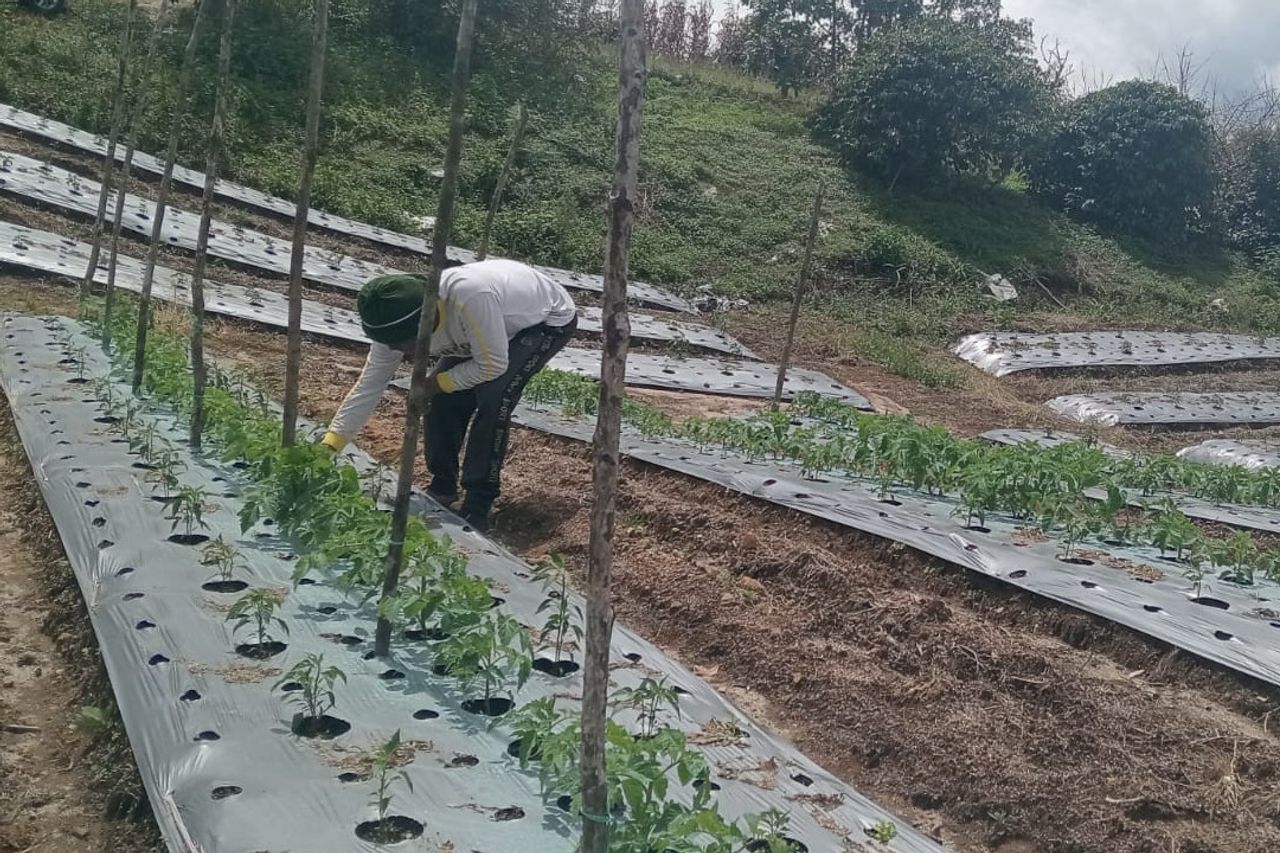Farmers In Humbang Hasundutan Successfully Planted Shallots From Seeds

JAKARTA - The success of farmers in Humbang Hasundutan, North Sumatra in cultivating horticultural crops, especially shallots, is increasingly showing the great potential of the agricultural sector in improving the local economy. In recent years, horticultural farmers in this province have succeeded in developing various types of vegetable plants, especially shallots grown from seeds or also known as True Shallot Seed (TSS).
Previously, we never knew that we could grow shallots from seeds. After trying, the results turned out to be extraordinary and very satisfying. Each seed planted produces eight cubs and from 2000 the plant population can produce up to 400 kg of harvest," said Lochkung Lumbantoruan, a farmer from Lobutua Village, Humbang Hasundutan Regency, quoted Friday, December 20.
Lochkung tells the story of a long time ago, farmers planted onions from seed tubers which required very expensive costs. As an illustration, for an area of about one hectare of tubers, the required seeds can reach 1.5 tons or at a cost of no less than Rp55 million.
Not including the costs that must be incurred by farmers for land preparation, fertilization and maintenance. The cost will swell if there is an attack on the disease. The reason is, tubers often carry a source of disease that can infect and attack crops that cause crop failure.
Therefore, the cultivation of shallots from seeds or seeds is a solution that is highly anticipated by farmers. The reason is, apart from being relatively free from disease because the seeds used tend to be cleaner and more controlled, the cost of planting is also much more economical. How not, for one hectare of planting land, the seeds needed are about 5 kg or at a cost of around Rp. 10 million. As a result, the initial investment cost to start the cultivation of shallots can be minimized.
By using seeds, farmers can save on seeds and minimize the risk of losses caused by damaged or failed to grow onion seeds. In addition, because the seeds produced are more and can be produced on their own, farmers can increase the amount of production, which in turn will increase their income. This economic advantage is greater in the long term because it reduces dependence on the purchase of seeds from outside.
Not only that, but onion seeds from seeds are easier to obtain in large quantities. By planting shallots from seeds, farmers do not need to depend on the supply of seed tubers which may be limited and the price fluctuates. This is very profitable to increase the production scale, especially in the harvest season which is a lot of demand.
The method of growing shallots from seeds supports more sustainable agricultural practices. Planting shallots from seeds also encourages the development of agricultural technology. This method requires more sophisticated mastery of agricultural engineering, such as selection of superior varieties, seed care techniques, and better soil management. The success of mastering these techniques can bring farmers to a more professional level and increase overall agricultural yields.
"In the end, we mastered the method of planting shallots from these seeds from the Red Arrow Cap officers. Those who introduced superior shallot seeds such as Lokananta, Talenta and Merdeka F1, including accompanying us during the cultivation process until we managed to get a satisfactory harvest," said Lochkung.
Haposan, a farmer who also comes from Humbang Hasundutan, said the same thing. According to him, thanks to the adoption of modern agricultural technology and the application of more efficient cultivation methods obtained from the Red Arrow Cap officers, horticultural farmers in their area are increasingly able to increase their crops. Not only shallots, other examples of success can be seen in collic cultivation, chilies and tomatoes.
"With assistance, we can apply more efficient agricultural techniques. This helps increase yields, while reducing production costs," said Haposan.
BACA JUGA:
Success in the horticultural sector is not only felt by farmers, but also has an impact on their family's economy. More stable and increasing income allows many farmers to improve their quality of life. A number of farmers who previously relied on other sectors have now begun to switch to horticultural agriculture, which is more promising.
Haposan revealed that their family's income increased thanks to the yield of vegetables supplied to local markets and surrounding areas. Furthermore, the success of horticultural cultivation also opens up opportunities for new jobs, both for seasonal workers and for those involved in distribution and marketing of horticultural products. This has an impact on increasing income at the household level which was previously unlucky.
However, challenges in the horticultural agricultural sector still exist. Problems such as price fluctuations, climate change, and limited production facilities are things that need to be overcome to ensure the sustainability of cultivation. Therefore, it is important for stakeholders in the agricultural sector to continue to provide assistance to farmers and introduce technology that can overcome these obstacles.
The success of farmers in cultivating horticultural crops in North Sumatra is clear evidence that the agricultural sector has great potential to boost the economy of farmers' families. In addition to increasing income and quality of life, this sector also opens up opportunities for new jobs and strengthens local food security.
